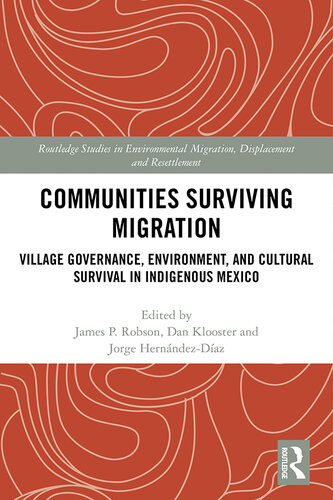

Most ebook files are in PDF format, so you can easily read them using various software such as Foxit Reader or directly on the Google Chrome browser.
Some ebook files are released by publishers in other formats such as .awz, .mobi, .epub, .fb2, etc. You may need to install specific software to read these formats on mobile/PC, such as Calibre.
Please read the tutorial at this link: https://ebookbell.com/faq
We offer FREE conversion to the popular formats you request; however, this may take some time. Therefore, right after payment, please email us, and we will try to provide the service as quickly as possible.
For some exceptional file formats or broken links (if any), please refrain from opening any disputes. Instead, email us first, and we will try to assist within a maximum of 6 hours.
EbookBell Team

4.7
86 reviewsOut-migration might decrease the pressure of population on the environment, but what happens to the communities that manage the local environment when they are weakened by the absence of their members? In an era where community-based natural resource management has emerged as a key hope for sustainable development, this is a crucial question.
Building on over a decade of empirical work conducted in Oaxaca, Mexico, Communities Surviving Migration identifies how out-migration can impact rural communities in strongholds of biocultural diversity. It reflects on the possibilities of community self-governance and survival in the likely future of limited additional migration and steady – but low – rural populations, and what different scenarios imply for environmental governance and biodiversity conservation. In this way, the book adds a critical cultural component to the understanding of migration-environment linkages, specifically with respect to environmental change in migrant-sending regions.
Responding to the call for more detailed analyses and reporting on migration and environmental change, especially in contexts where rural communities, livelihoods and biodiversity are interconnected, this volume will be of interest to students and scholars of environmental migration, development studies, population geography, and Latin American studies.